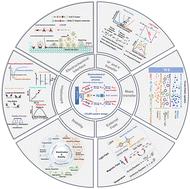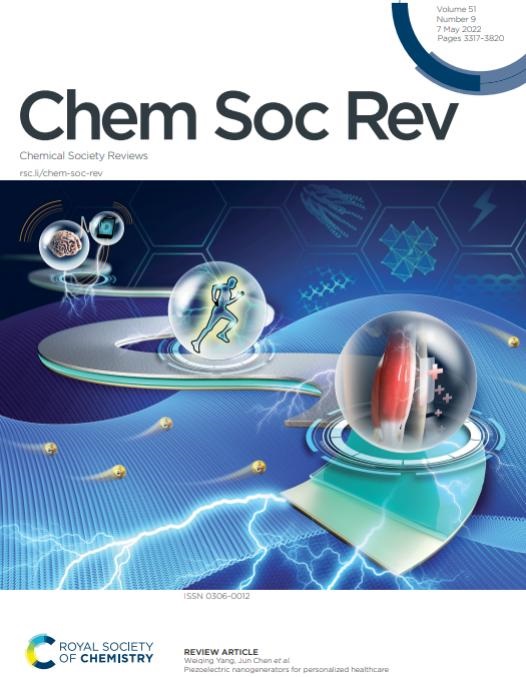Optimizing CO2 electroreduction: theoretical insights for enhancing efficiency across elementary steps
IF 39
1区 化学
Q1 CHEMISTRY, MULTIDISCIPLINARY
引用次数: 0
Abstract
The electrochemical CO2 reduction reaction (CO2RR) can convert CO2 emissions into valuable fuels and chemicals, offering a promising pathway to close the carbon cycle. However, existing CO2RR systems face challenges in holistically optimizing interdependent elementary processes, such as adsorption, electron–proton transfer, and mass transport, resulting in unavoidable trade-offs between selectivity, activity, and stability. To address these limitations, a thorough analysis of these elementary steps is essential, supported by theoretical frameworks to guide the design of electrocatalytic systems. By systematically optimizing each process, CO2RR performance can be significantly enhanced. This review provides a comprehensive overview of the theories and applications governing elementary steps in CO2RR systems for fine-tuning both catalysts and their near-catalyst environments. The deactivation mechanisms of electrocatalysts are discussed, along with strategies to enhance their stability. Furthermore, alternative anodic reactions that enhance the energy efficiency of the associated system are outlined, along with experimental methodologies for investigating CO2RR mechanisms. Finally, the review critically assesses the challenges and future prospects in CO2RR research. Through this in-depth analysis, the review advances the understanding of key theoretical principles and their practical applications in CO2RR, offering valuable insights for the design and industrial implementation of electrocatalytic CO2RR systems.

优化二氧化碳电还原:提高基本步骤效率的理论见解
电化学CO2还原反应(CO2RR)可以将CO2排放转化为有价值的燃料和化学品,为关闭碳循环提供了一条有前途的途径。然而,现有的CO2RR系统在整体优化相互依存的基本过程(如吸附、电子-质子转移和质量传递)方面面临挑战,导致不可避免地在选择性、活性和稳定性之间进行权衡。为了解决这些限制,对这些基本步骤进行彻底的分析是必不可少的,并通过理论框架来指导电催化系统的设计。通过系统优化各流程,可以显著提高CO2RR性能。本文综述了CO2RR系统中用于微调催化剂及其近催化剂环境的基本步骤的理论和应用。讨论了电催化剂的失活机理,以及提高其稳定性的策略。此外,还概述了提高相关系统能源效率的替代阳极反应,以及研究CO2RR机制的实验方法。最后,综述批判性地评估了CO2RR研究的挑战和未来前景。通过这一深入的分析,综述推进了对CO2RR关键理论原理及其实际应用的理解,为电催化CO2RR系统的设计和工业实施提供了有价值的见解。
本文章由计算机程序翻译,如有差异,请以英文原文为准。
求助全文
约1分钟内获得全文
求助全文
来源期刊

Chemical Society Reviews
化学-化学综合
CiteScore
80.80
自引率
1.10%
发文量
345
审稿时长
6.0 months
期刊介绍:
Chemical Society Reviews is published by: Royal Society of Chemistry.
Focus: Review articles on topics of current interest in chemistry;
Predecessors: Quarterly Reviews, Chemical Society (1947–1971);
Current title: Since 1971;
Impact factor: 60.615 (2021);
Themed issues: Occasional themed issues on new and emerging areas of research in the chemical sciences
 求助内容:
求助内容: 应助结果提醒方式:
应助结果提醒方式:


